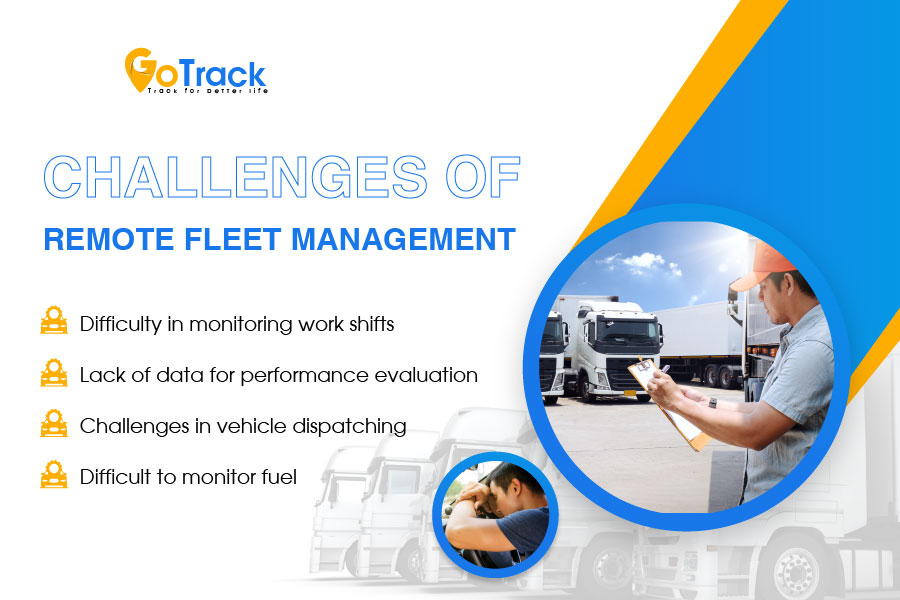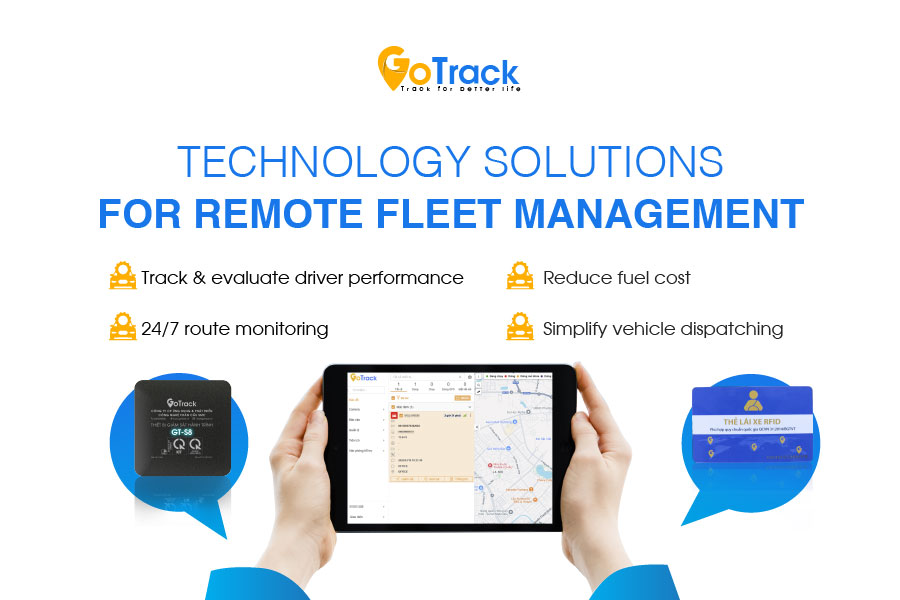Remote fleet management has been considered a challenging task for transportation businesses due to its complexity. However, in the era of industry, with the support of advanced machines and software, is managing a fleet still as difficult as it used to be?
Let’s explore the answer with GoTrack in the following article!
Challenges in remote fleet management
Monitoring driver behavior
Every transport business needs to monitor drivers’ behavior. However, managers may find it challenging to know exactly how drivers are driving the vehicles without being physically present.
For drivers who are careful and adhere to regulations, driving in the correct lane, maintaining appropriate speed, and ensuring compliance with work and rest hours—the company can trust their work quality. However, without a monitoring system, some drivers may engage in risky behavior, such as speeding or abrupt braking, when not directly supervised.
Evaluating work quality
Without the ability to constantly track drivers, evaluating and adjusting work performance becomes difficult. Managers can’t promptly remind or discipline drivers when dangerous driving behaviors are detected, nor can they provide proper training and guidance to improve driving skills. If a driver repeatedly violates safety rules without being corrected, the risk of collisions or traffic accidents increases significantly. This not only leads to damage to people and property but also has serious impacts on the company’s reputation and image.

On the other side, for drivers who perform diligently, drive safely, and comply with regulations, the company may not recognize their efforts to implement appropriate reward and incentive policies. This can lead to dissatisfaction and demotivation among drivers.
Vehicle allocation and coordination
Allocating and coordinating vehicles becomes a challenge when managers are not physically present to arrange schedules and ensure that vehicles are operating at their optimum level. Problems such as over- or under-utilization of vehicles, empty vehicles, or overloaded vehicles may occur, resulting in wasted resources and increased operational costs.
Monitoring fuel consumption
Fuel costs make up a significant portion of total business operating expenses. Therefore, managers need to monitor fuel consumption for each vehicle to ensure efficiency. Without a remote fuel monitoring system, businesses may face issues like non-optimal routes, idle vehicles, or even fuel theft.
Technology supporting remote fleet management
Modern GPS tracking devices
Modern GPS tracking technology is an optimal solution that helps businesses effectively monitor drivers’ activities from a distance. With advanced tracking devices, companies can easily track vehicle locations, travel routes, and drivers’ behavior in real-time, allowing timely detection and intervention when drivers engage in dangerous driving behaviors.
Additionally, many devices support driver management through RFID driving cards, ensuring that drivers work the prescribed hours and preventing violations of work time regulations, insufficient rest, or inactivity. This is also a solution that helps transport businesses reduce the risk of traffic accidents caused by driver errors.
Read more: GPS Tracking devices GT-S8

Fleet management software
Fleet management software integrates multiple features and alerts, helping both managers and drivers stay proactive in vehicle operations. With detailed information and data frequently provided and updated on the software, managers can easily monitor and make appropriate adjustments to route plans to optimize operational efficiency.
Fuel sensors
In addition to GPS tracking devices, fuel sensors are a crucial and useful tool to support businesses in managing their fleets remotely. Managers can view detailed data on fuel consumption for each vehicle. When there are abnormal fuel discharges, alerts are sent via the software, preventing fuel theft and helping businesses optimize this expense.



